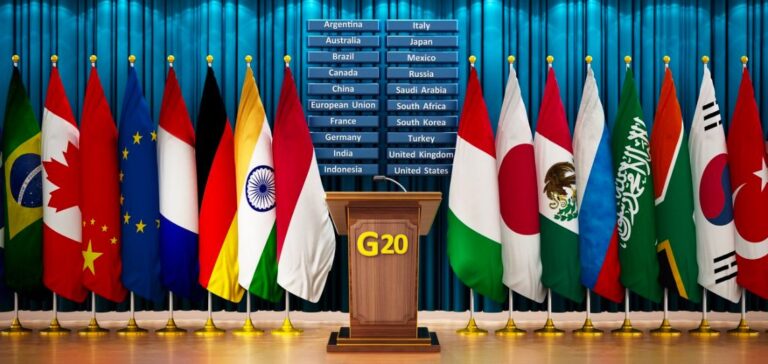A meeting of G20 energy ministers ended Friday without a joint communiqué because of “disagreements” but with a commitment from major economies to accelerate a “fair” energy transition, host country Indonesia announced.
The “Bali Compact”, a non-binding document proposed by Indonesia, which is chairing the G20 this year, detailing the measures needed to achieve a zero emissions target, has been approved by all members of the group, said Indonesian Energy Minister Arifin Tasrif.
“The G20 Energy Ministers have sent a strong signal to the market for political actors to take action to strengthen an enabling environment for investment (…) and enable a clean, sustainable, equitable, and inclusive energy transition, especially for developing countries,” the minister said during an online press conference.
While the details of the text have not been published, its principles aim to put in place the conditions to stimulate investment in non-carbon energy, according to the minister.
But the group failed to agree on a formal communiqué because of “disagreements among countries” during the one-day meeting in Bali, Arifin Tasrif said, without elaborating.
Several ministers, notably British and French, began their speeches by denouncing Russia’s invasion of Ukraine, which has destabilized energy supplies and world energy markets.
“This current energy crisis shows us that we need to accelerate the transition to decarbonized energy,” but the presence of Russia at the meeting did not allow a consensus to obtain a communiqué, a source close to the meeting told AFP.
Secretary of State for Ecology Bérangère Couillard represented France at the meeting, which was attended by ministers from the United States, Saudi Arabia, Russia, Australia, India and South Africa and several representatives of the European Union.
The talks follow a climate meeting on Wednesday that also failed to produce a joint communiqué, reflecting deep divisions among the world’s largest economies.
British Climate Minister Alok Sharma, who attended the meeting, called on countries to “revisit and strengthen” their commitments to achieve carbon neutrality.
“There must be no backtracking on commitments,” pleaded on twitter, the man who chaired the last UN climate conference, COP27.
The meeting is a prelude to the G20 summit in November which Russian President Vladimir Putin is expected to attend, according to his Indonesian counterpart Joko Widodo.





















